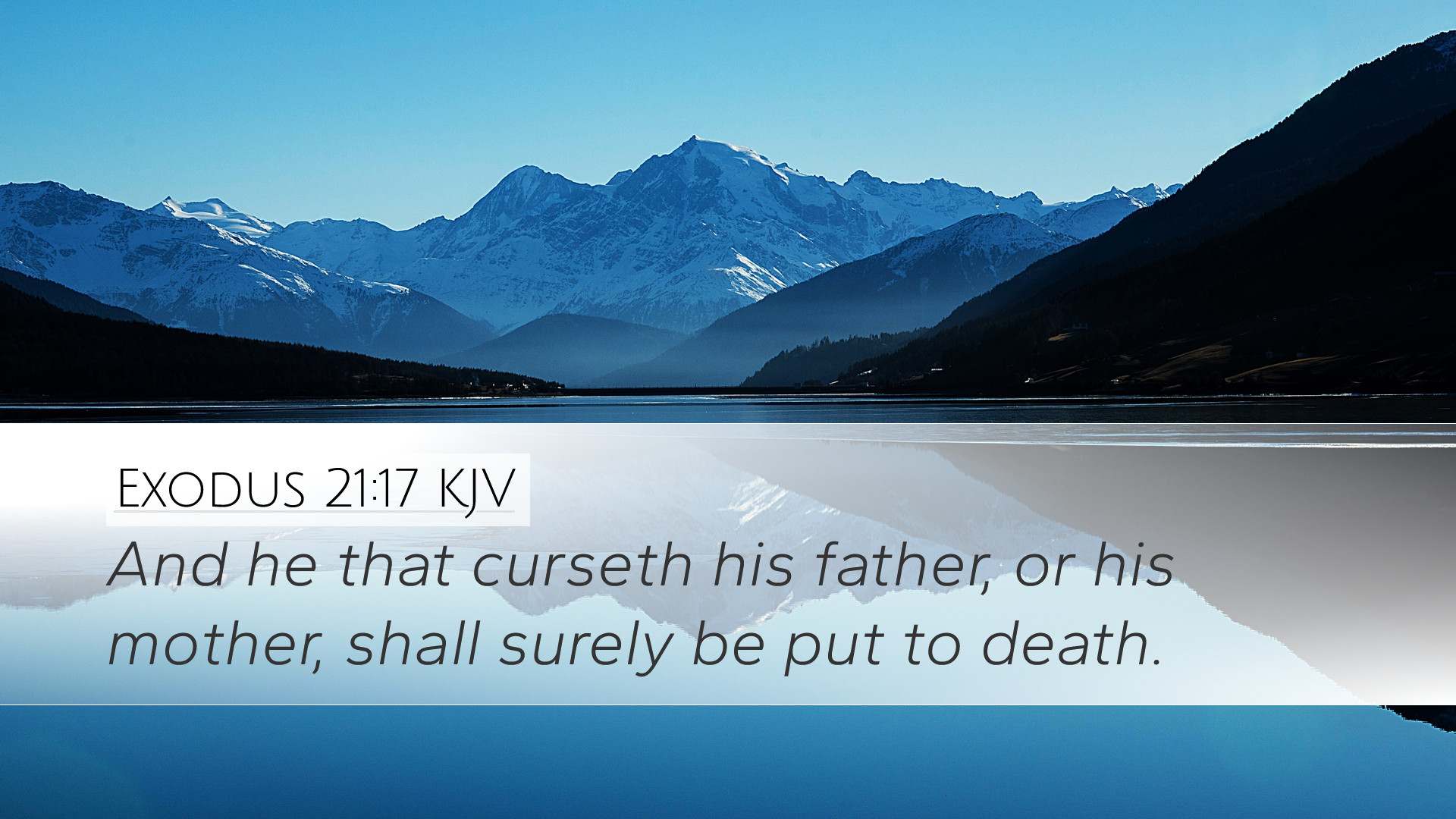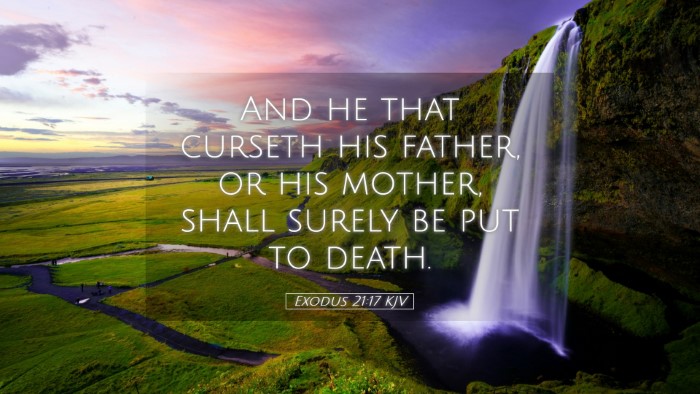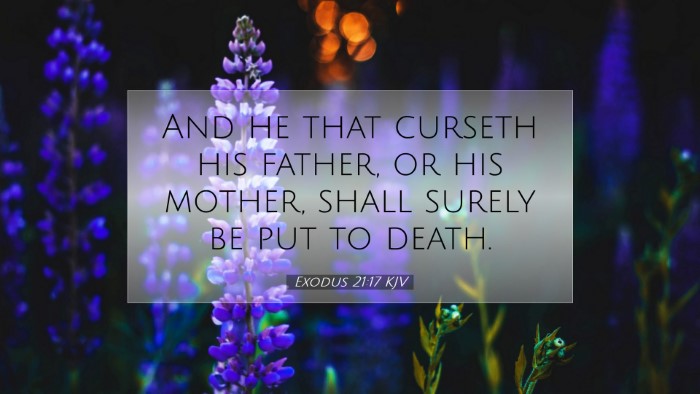Exodus 21:17 Commentary
Bible Verse: "And he who curses his father or his mother shall surely be put to death." (Exodus 21:17, NKJV)
Introduction
Exodus 21:17 represents a part of the Mosaic Law, which consists of various ordinances set to guide the people of Israel in their moral and social conduct. This verse specifically addresses the severe punishment associated with cursing one's parents, thereby emphasizing the sanctity of familial relationships and respect for parental authority.
Historical Context
The Ancient Near Eastern culture placed a strong emphasis on family and social hierarchies. In Israelite society, the family unit was foundational. To curse one’s parents was not merely a personal affront but an act that undermined the social and spiritual order.
Theological Insights
Matthew Henry notes that this command highlights the seriousness with which the Lord views the fifth commandment, "Honor your father and mother." To curse one’s parents is a reflection of deep-seated rebellion against authority which, in biblical theology, can be seen as rebellion against God Himself.
Albert Barnes elaborates on the nature of cursing, indicating that it encapsulates not only verbal abuse but also an attitude of disrespect and contempt that could lead to further moral decay within the community. It signifies a breakdown of the order that God established for familial relationships.
Adam Clarke further points out the societal implications of such behavior. The harsh penalty of death for cursing one’s parents serves as a deterrent against actions that could prompt further sin and societal upheaval.
Ethical Considerations
While the punishment prescribed appears severe by modern standards, it is essential to consider it within the historical and literary context. The penalty reflects the gravity of the offense within the community of faith, reinforcing the divine mandate for order and respect. In a contemporary setting, while the application of such a penalty is not feasible nor acceptable, the underlying principles of honor, respect, and familial responsibility remain relevant.
We must also consider how this verse has been used as a lens for understanding the broader ethical teachings found throughout Scripture. For pastors and theologians, the seriousness with which the Lord commands honor towards parents can be a touchstone for discussing issues of authority, respect, and moral obligation in various relationships today.
Applications for Today
- Honoring Parents: This verse reinforces the importance of honoring parents, a principle that transcends cultural and temporal boundaries.
- Consequences of Disrespect: The harsh consequence serves as a reminder that disrespect towards authority can lead to chaotic societal conditions, urging individuals to consider their attitudes toward familial relationships.
- God’s Authority: Furthermore, it underlines the principle that disrespect for parental authority is ultimately a contempt for God’s authority, underscoring the interconnectedness of divine and human relationships.
Conclusion
Exodus 21:17 is a powerful reminder of the weight that God places on familial relationships and the respect due to parents. The severe penalty associated with cursing one’s father or mother illustrates the high stakes of this commandment. For modern readers, while the cultural context may differ, the fundamental principles of honor, respect, and societal order remain critical in our ongoing dialogue about morality and ethics. Pastors, students, and scholars alike can draw from this passage not just as a historical ordinance but as a vital teaching for today’s ethical considerations in family dynamics and the broader society.


